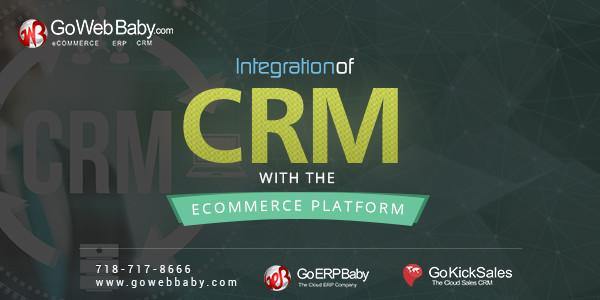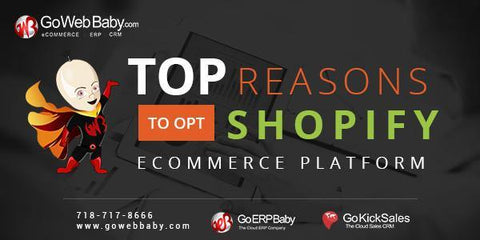The growth of product development often keep an eye on an all-too-familiar pattern. Uncountable point solutions, developed to solve a single business challenge arise to meet market requirements, only to wind up siloed and separated from one another. With time, some of those solutions slowly find their perfect match and become associated to accomplish an integrated and more powerful solution. Integrating CRM with Ecommerce Platform provides company with single system of record for all information related to customers.
As we look to the next development in technology, there is a clear case to be made that customer relationship management (CRM) systems will sensibly unite with Ecommerce platform. It seems integrally clear that a company would want to have a single system of record for customer interactions and information as well as the customer’s commerce transactions
How Integrating CRM with Ecommerce Platform Helps
In B2C ecommerce, the integration of CRM with the Ecommerce platform introduces a wealth of new potentials to measure and monitor everything that happens online. Combining order data and interaction in a single source will empower the capability to drive personalized and dynamic merchandising and offers online.
Traditional sales force automation (SFA) in B2B markets can also enjoy a commerce-aware customer system. Indeed a sales representative managing a portfolio of accounts does not have the bandwidth to consistently communicate with every prospect and customer. When CRM competences are added to B2B websites, sales representatives have much better visibility into services or products an individual may be studying on website, boosting sales efficiency.
Taking this a step further, the integration of Ecommerce and CRM provides a foundation for customer self-service. This self-service proficiency has conventionally been challenging to implement because the essential information typically lives partly in the CRM system and partly in the Ecommerce system. An incorporated system removes the need to settle data across two applications while enhancing the customer experience and, probably, sales.
Additional factor that is driving towards integrated Ecommerce and CRM is growing awareness that the conventional linear transaction funnel is outdated. In the old world of commerce, where dealings were driven through sales people, each collaboration was time consuming and focused. In today’s mobile, digital and social world, customer interactions with a brand leading up to a sale are far too haphazard variable and frequent to fit that old-school linear model. A CRM system needs to adapt to these micro-interactions. Without an integrated platform that interaction will likely never be captured.
In spite of the patent value of analyzing and capturing as much customer detail as possible, the conventionally separate worlds of CRM and ecommerce have made incorporation economically useless. Most companies would agree that recording all customer actions on an Ecommerce website is worthwhile, yet few are willing to make the investment to repeat that data into an individual CRM system.
What is more probable to occur is for Ecommerce platforms to start moving afar being an only transactional system toward a system that delivers the foundation of the customer relationship. The only way to accomplish this objective is to build Ecommerce and CRM directly on the same platform, creating a single data source.
CRM proficiencies implanted in an Ecommerce platform are superior to the sum of the two individual products. While the technology challenges presented when incorporating individual Ecommerce and CRM can be overwhelming, finding a provider that offers both skills natively assimilated will proliferate your returns.






